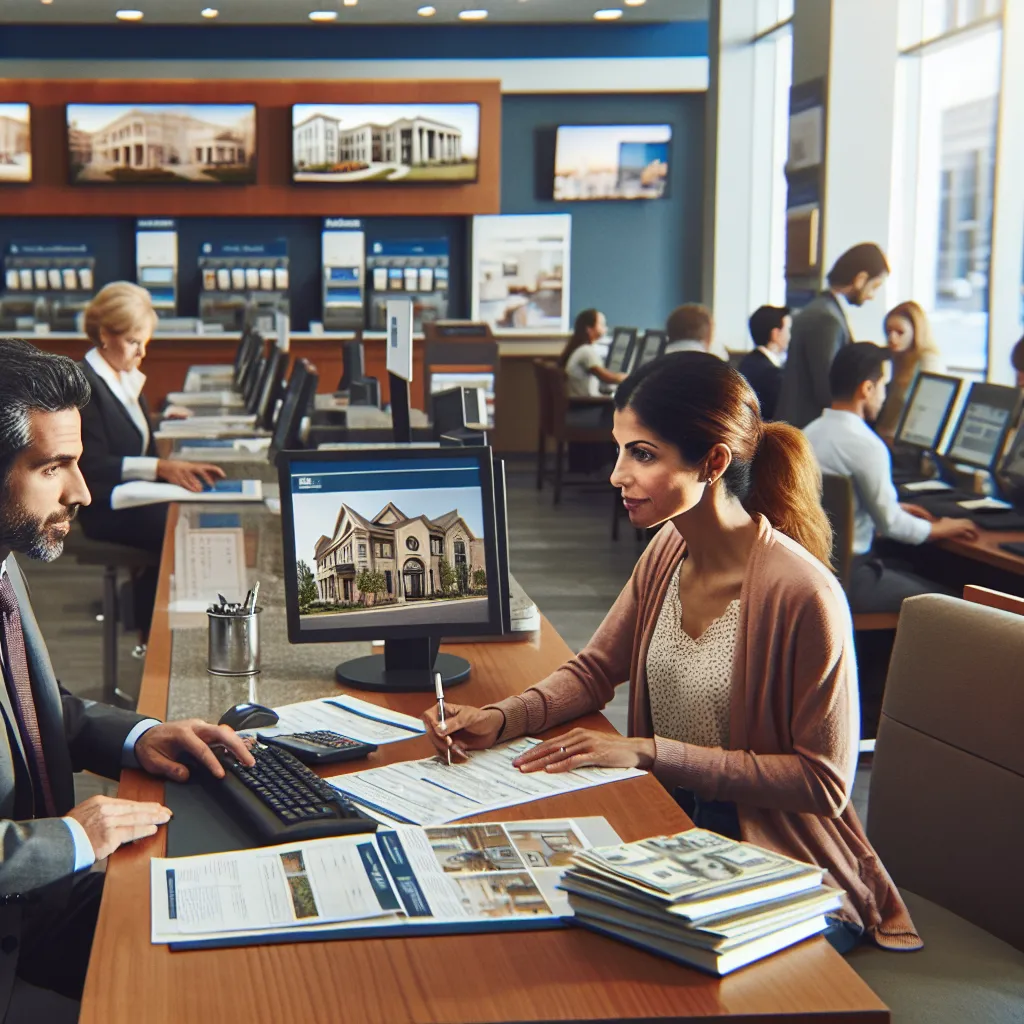Embarking on the journey to purchase property as a small business owner can be both thrilling and daunting. Did you know that leveraging a small business loan could be your ticket to owning that perfect spot in Georgia? With options like SBA 504 and 7(a) loans, you can finance real estate, renovate existing structures, or even construct new facilities. But, how do these options stack up, and which is right for your business?

Understanding SBA 504 and 7(a) Loans
SBA 504 Loans
SBA 504 loans are crafted for large equipment and real estate acquisitions. These loans involve three parties: a Certified Development Company (CDC) funding 40%, a third-party lender covering 50%, and the borrower contributing 10%. If you’re a new business or tackling a “special purpose property,” prepare for a higher down payment.
- Use Cases:
- Purchasing land or buildings
- Land enhancements, such as curbs and parking
- Building renovations
-
Major equipment buys
-
Terms:
- Loan amount: Up to $5.5 million
- Repayment: 20 to 25 years for real estate
- Interest: 5% to 7% on CDC portion
SBA 7(a) Loans
The more versatile 7(a) loans are the most popular SBA loans, issued by banks and credit unions. They offer flexibility for real estate purchases, expansions, and working capital.
- Use Cases:
- Land and building purchases
- Equipment and inventory purchases
-
Working capital
-
Terms:
- Loan amount: Up to $5 million
- Repayment: Up to 25 years for real estate
- Interest: 11.5% to 15%, based on prime rate
Key Differences Between SBA 504 and 7(a) Loans
| Feature | SBA 504 Loan | SBA 7(a) Loan |
|---|---|---|
| Loan Amount | Up to $5.5 million | Up to $5 million |
| Interest Rate | Typically 5% to 7% | 11.5% to 15% |
| Structure | Involves a CDC, lender, and borrower | Issued by a single lender |
| Use Cases | Primarily real estate and equipment | Flexible, includes working capital |
Qualifying for SBA Loans
To secure an SBA loan, your business must operate within the U.S., and you must show a strong credit score, typically 690 or higher. Moreover, your property project should be at least 51% owner-occupied, and for 504 loans, meet job creation or public policy goals.
Applying for an SBA Loan
The application process for SBA loans can be intensive. You’ll need to provide:
- Borrower information form
- Personal and business tax returns
- Business financial statements
Once prepared, leverage AnySqft’s AI-driven platform to streamline your property transaction process. It simplifies the journey, offering efficiency and insight into each step.
Choosing the Right Loan
If your goal is to finance a real estate project with lower interest rates, an SBA 504 loan could be ideal. However, if you desire a simpler structure and flexible use of funds, consider the 7(a) loan. Both options offer competitive terms, but the right choice depends on your business’s unique needs and goals.
Conclusion
Understanding how SBA loans work is crucial for small business owners looking to invest in property. Whether you choose a 504 or 7(a) loan, these options provide a path to ownership and expansion. By navigating the intricacies of these loans, you can secure the ideal financing for your business’s growth in Georgia.
Small Business Loan to Buy Property
When considering a small business loan to buy property, you have two main options:
- SBA 504 Loans: Ideal for real estate and equipment purchases, with lower interest rates (5%-7%) and longer repayment terms (up to 25 years).
- SBA 7(a) Loans: More flexible, allowing for various uses including working capital, with interest rates ranging from 11.5% to 15%.
Both require strong credit and owner-occupancy of at least 51%.
To simplify your property transaction process, consider using AnySqft. Discover more about how AnySqft can help you achieve your real estate goals here.